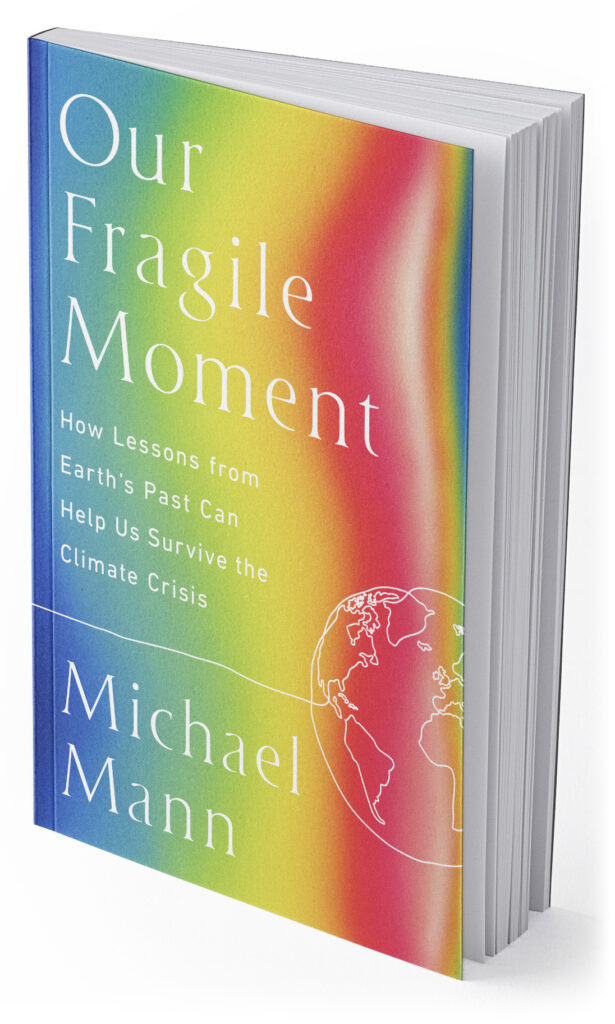Hopium for Nerds
Our Fragile Moment, How Lessons from Earth’s Past Can Help Us Survive the Climate Crisis.
Michael Mann, New York: PublicAffairs, 2023. 320 pages. $19.00 / $30.00

For the past three decades, almost anyone paying attention has become aware that the climate of our planet is changing, that it’s doing so rather rapidly, and that this is leading to all sorts of nasty outcomes – from increasingly extreme weather through rising sea levels to higher food prices, and more.
This has led to a massive effort from the fossil fuel industry to dismiss the whole thing as some kind of conspiracy by corrupt climatologists. They’ve been abetted, in more recent years, by false prophets of doom stating that it’s already too late and that the best we can do is prepare for our collective deaths with a smile on our face.
Michael Mann became famous as the author of The Hockey Stick and the Climate Wars (Columbia University Press, 2012), which slapped the world awake. In “Our Fragile Moment,” his latest book, he meticulously dissects the findings of climate science as applied to our world’s history (paleoclimatology, as it’s known, reaches right back to the planet’s beginnings in the Hadean Eon). This is the best kind of science book; it doesn’t dumb anything down, doesn’t hide any of the scientific controversies, yet is diamond-clear in its writing.
The conclusions he comes to are clearly alarming: we don’t have an enormous amount of leeway left to keep our planet a pleasant place for most of its inhabitants. But the conclusions are also oddly reassuring. Mann points out, with all of the science, that the doomist idea that we’re all going to die thanks to a methane bomb is profoundly wrong. We can save our sorry asses – if we choose. With this in your back pocket, you’ll never again fall for idiotic headlines screeching for your clicks.
He doesn’t discuss it in this book, but if you combine those insights with the extraordinarily fast rollout of solar and wind energy, the rapid expansion of grid management to let renewable energy reach consumers, and the expansion of storage like batteries to keep electricity available for the days when the sun don’t shine and the wind don’t blow, then you begin to see a way out of our fragile moment.
Yes, we can take steps back, and these steps can come from both sides of the political spectrum. Sure, a Donald Trump destroying climate subsidies and pumping numberless billions into new fossil fuel subsidies would be bad news. But a President Biden who decides, for political reasons, to slap 100% duties on cheap Chinese electric cars, which will slow down the transition to decarbonized transport in the United States, is not exactly great news either.
But by and large, the animal spirits of capitalism are developing an extraordinary range of solutions affecting hundreds of industrial sectors, from the most basic (check out cement) to the most obscure, all pointing in the same direction: fewer greenhouse gas (GHG) emissions and lower resource use for the same, or even more, products and services.
Our Fragile Moment does not necessarily have a good outcome, but right now I’d say that is a more likely prospect than that it would end up in disaster.
